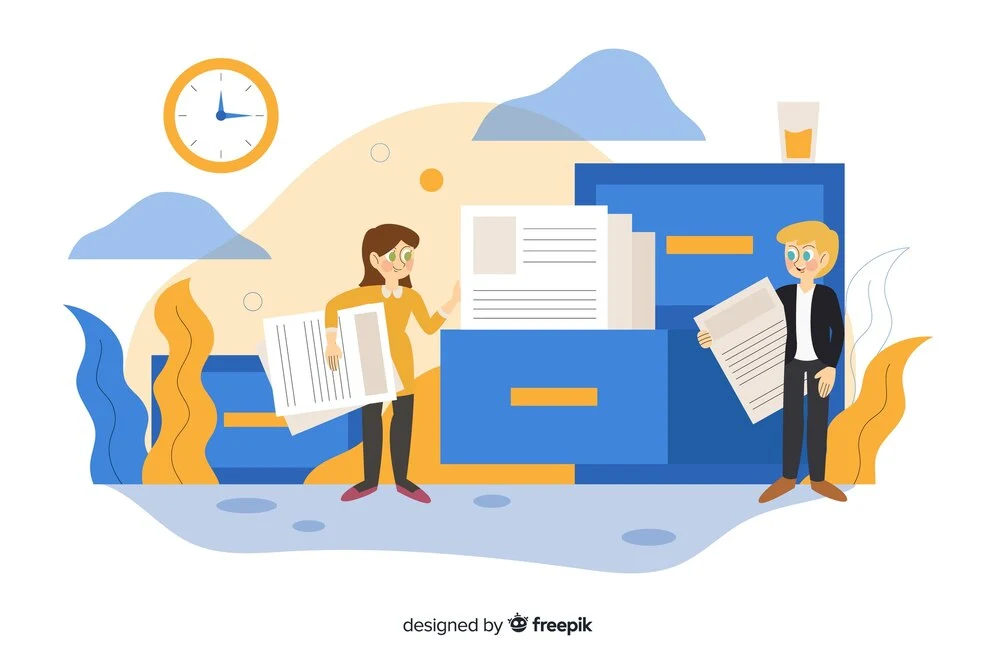Understanding how to report copyright infringement is essential for business owners seeking to shield their reputation from harm in the digital realm.
Implementing digital safeguards provides the ultimate protection against unauthorised use of intellectual property.
Initiating action against copyright infringement begins with issuing a legal notice to the infringing party. This process not only asserts your rights but also formally documents copyright claims, laying the groundwork for any necessary legal proceedings.
For business owners, mastering the steps to report infringement is crucial in maintaining the integrity of their brand and ensuring their creative assets are protected.
The illegal use or dissemination of another person’s creative work, such as music, images, films, software, without their consent or legal authorisation is a copyright violation.
This can include making copies, reproducing, adapting, modifying, or displaying the work publicly without proper attribution or compensation to the owner. Copyright violation may result in legal actions.
Below are some of the examples of copyright violations listed:

Reporting copyright infringement is a crucial step in protecting intellectual property rights. Here’s a step-by-step guide on how to do it effectively:
Identify the Infringement: Confirm that the material in question is indeed copyrighted and that its use falls outside the realm of fair use or any license agreements.
Gather Evidence: Document the infringement by taking screenshots, noting URLs, and gathering any other evidence that shows the copyrighted material being used without permission.
Contact the Infringer: If possible, reach out to the individual or entity using the material to request its removal. Sometimes, this direct approach can resolve the issue quickly without further action.
Report to Hosting Platforms: If the content is hosted online (e.g., websites, social media platforms), use the platform’s official copyright infringement reporting system. Most platforms have a form or a specific process for this:
Use the DMCA Takedown Notice: In the United States, the Digital Millennium Copyright Act (DMCA) provides a legal framework for addressing online copyright infringement. Draft a DMCA takedown notice and send it to the service provider hosting the infringing content. The notice should include:
Contact Copyright Protection Agencies: For more severe cases, or if you need assistance, consider contacting copyright protection agencies or legal counsel specialising in intellectual property law. They can offer guidance and, if necessary, take legal action on your behalf.
Report to Authorities: In cases of widespread or commercial-scale infringement, reporting to law enforcement or copyright authorities in your country may be appropriate. They can investigate and potentially prosecute the infringers.
Remember, copyright laws vary by country, so the process and protections may differ depending on where you and the infringer are located.
Always consider seeking legal advice to ensure you’re taking the correct steps according to your jurisdiction.
Knowing where to report copyright infringement can streamline the process and ensure that your complaint reaches the appropriate authorities.
Here are some common avenues for reporting copyright infringement:
Authorities: Report to your local government or the U.S. government here. This serves more as a record than an immediate action to remove the infringement.
Online Content: Report to the website or platform hosting the content. Most websites have a copyright infringement or DMCA (Digital Millennium Copyright Act) report form.
You’re at the right place, contact us to know more.
Businesses: If a business is infringing, report to the legal department of the company, or if they are a customer of a larger service (like a web hosting company), report to the service provider.
Platforms: Report the infringement directly to the social media platform or e-commerce marketplace where you discovered it. There are systems in place on platforms such as Amazon, Shopify, Facebook, and Instagram for users to readily report copyright violations.
Logos: Report to the platform where the logo is being misused, or directly to the company if they are using your logo without permission.
Music: For online infringement, report to the platform hosting the music. For commercial use, report to a performing rights organisation (e.g., ASCAP, BMI) or the record label.
Movies: Report to the streaming platform, website, or the Motion Picture Association’s (MPA) anti-piracy department.
Search Engines: If you are experiencing difficulty having copyright infringement eliminated. Search engines are a good way to report it.
You can make sure that customers cannot find the infringing content, even if you are unable to persuade the counterfeiter or the website operator to remove it.
Copyright violations can be reported to Google, which will help remove the content from the platform and prevent it from appearing in searches.

Identifying copyright infringement involves a systematic approach to ensure that your intellectual property rights are not being violated. Here are key strategies to effectively identify potential infringements:
Direct Comparison: Perform a side-by-side review of your original work and the suspected infringing material. Look for substantial similarities or direct copying that could indicate infringement.
Contextual Analysis: Consider the context in which the work is used. Even if the alleged infringing work is not an exact copy, modifications or derivative works without permission might still constitute infringement.
Plagiarism Detection Software: Use software designed to detect textual similarities and potential plagiarism. These tools can scan the internet for copies or partial matches of your work.
Image and Video Recognition Tools: For visual or audiovisual works, employ image recognition or video matching tools that scan for visual similarities across the web and on social media platforms.
Content Monitoring Services: Subscribe to services that continuously monitor the digital landscape for your copyrighted material, alerting you to potential infringements as they occur.
Verify Permissions: Review any licensing agreements or permissions you have granted to others to use your work. Ensure that the use falls within the agreed terms and that no infringement is occurring beyond the scope of the license.
Check Public Domain and Fair Use: Determine if the work in question falls into the public domain or if its use could be considered fair use under copyright law. These factors can influence whether an infringement has actually occurred.
By employing these strategies, copyright holders can proactively identify and address copyright infringements, protecting their intellectual property and ensuring that their rights are upheld.
Reporting copyright infringement is a critical legal process that enables content owners to protect their original content and uphold their priceless reputation.
Using reporting tools on online platforms and leveraging cutting-edge technology, such as Bytescare’s digital protection service, can streamline the process.
A copyright infringement notification serves as the first step in alerting infringers to potential legal consequences, including a copyright infringement lawsuit.
It’s essential for creators to understand the potential consequences of infringement and to use every available creation tool and resource to safeguard their work.
Bytescare offers a comprehensive solution for monitoring and addressing copyright issues efficiently. For more information, contact us to explore how our services can protect your intellectual property.
Absolutely! Reporting a breach of copyright is an essential step in protecting intellectual property rights and ensuring fair compensation for creators. If you come across infringing material online or elsewhere, don’t hesitate to take action.
To write a copyright infringement warning, clearly state your ownership of the copyrighted material, identify the specific work being infringed upon, and provide evidence of your copyright.
Demand that the infringing party cease their unauthorised use and remove the material in question.
Include a deadline for compliance and mention that legal action may be taken if the infringement does not stop. Be professional and factual in your tone.
Yes, if you are a copyright holder and you discover unauthorised use of your work, it is advisable to report the infringement. Reporting can help protect your intellectual property rights and prevent further unauthorised use of your work.
After discovering copyright infringement, document the infringement thoroughly. Then, contact the infringing party with a formal cease and desist letter or copyright infringement warning.
If the infringement continues, consider consulting with a copyright attorney to explore legal options, including filing a lawsuit.
An example of a copyright infringement notice is a formal letter addressed to the infringer, detailing the copyrighted work, how the work has been infringed, and demanding immediate cessation of the infringement.
It typically includes the copyright owner’s contact information, a deadline for response, and a warning of potential legal action if the infringement does not cease.
Copyright infringement should be reported to the platform where the infringement occurred, such as YouTube or Facebook, through their copyright complaint process.
For more severe cases, or if the infringement is not resolved through these channels, legal advice may be sought, and a copyright attorney can help in taking further legal action against the infringer.
Safeguard Your Digital Assets with our Cutting-Edge Security Solutions
Elevate your digital stature and shield your priceless reputation from harm. Select Bytescare for ultimate protection against piracy, defamation, and impersonation.